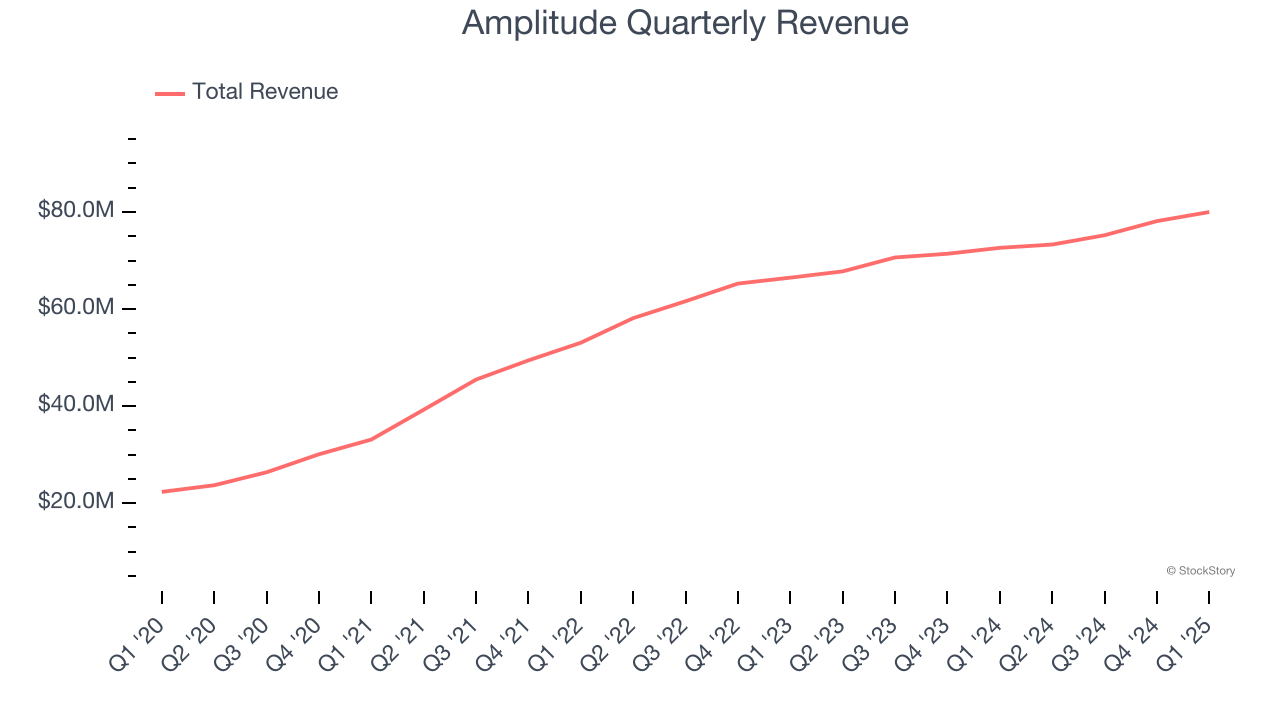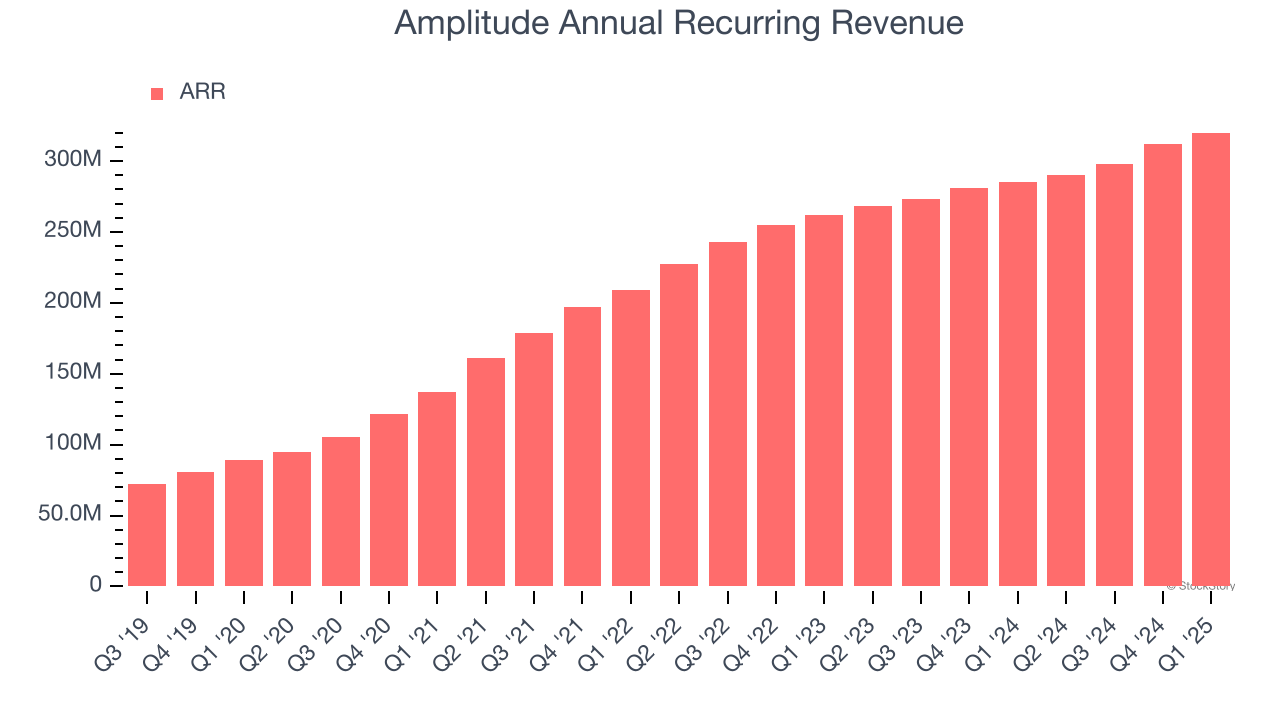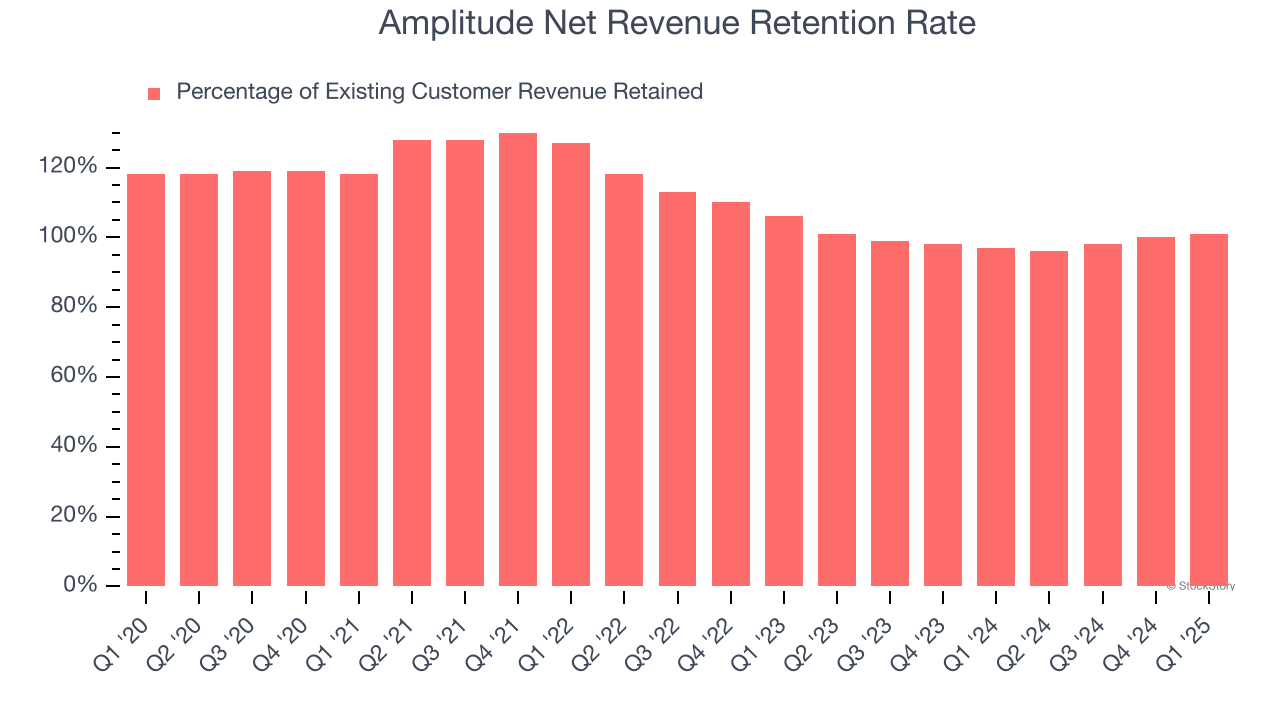
Data analytics software provider Amplitude (NASDAQ: AMPL) met Wall Street’s revenue expectations in Q1 CY2025, with sales up 10.2% year on year to $80 million. The company expects next quarter’s revenue to be around $81.3 million, coming in 1.3% above analysts’ estimates. Its non-GAAP loss of $0 per share was $0.01 above analysts’ consensus estimates.
Is now the time to buy Amplitude? Find out by accessing our full research report, it’s free.
Amplitude (AMPL) Q1 CY2025 Highlights:
- Revenue: $80 million vs analyst estimates of $79.7 million (10.2% year-on-year growth, in line)
- Adjusted EPS: $0 vs analyst estimates of -$0.01 ($0.01 beat)
- Adjusted Operating Income: -$2.1 million vs analyst estimates of -$4.05 million (-2.6% margin, 48.2% beat)
- The company slightly lifted its revenue guidance for the full year to $331 million at the midpoint from $327.8 million
- Operating Margin: -30.3%, up from -34% in the same quarter last year
- Free Cash Flow was -$9.2 million, down from $1.53 million in the previous quarter
- Customers: 4,000, up from 3,875 in the previous quarter
- Net Revenue Retention Rate: 101%, up from 100% in the previous quarter
- Annual Recurring Revenue: $320 million at quarter end, up 12.3% year on year
- Market Capitalization: $1.23 billion
Company Overview
Born out of a failed voice recognition startup by founder Spenser Skates, Amplitude (NASDAQ: AMPL) is data analytics software helping companies improve and optimize their digital products.
Sales Growth
A company’s long-term sales performance is one signal of its overall quality. Any business can put up a good quarter or two, but many enduring ones grow for years. Over the last three years, Amplitude grew its sales at a 17.9% annual rate. Although this growth is acceptable on an absolute basis, it fell slightly short of our standards for the software sector, which enjoys a number of secular tailwinds.

This quarter, Amplitude’s year-on-year revenue growth was 10.2%, and its $80 million of revenue was in line with Wall Street’s estimates. Company management is currently guiding for a 10.9% year-on-year increase in sales next quarter.
Looking further ahead, sell-side analysts expect revenue to grow 8.7% over the next 12 months, a deceleration versus the last three years. This projection doesn't excite us and indicates its products and services will face some demand challenges.
Software is eating the world and there is virtually no industry left that has been untouched by it. That drives increasing demand for tools helping software developers do their jobs, whether it be monitoring critical cloud infrastructure, integrating audio and video functionality, or ensuring smooth content streaming. Click here to access a free report on our 3 favorite stocks to play this generational megatrend.
Annual Recurring Revenue
While reported revenue for a software company can include low-margin items like implementation fees, annual recurring revenue (ARR) is a sum of the next 12 months of contracted revenue purely from software subscriptions, or the high-margin, predictable revenue streams that make SaaS businesses so valuable.
Amplitude’s ARR punched in at $320 million in Q1, and over the last four quarters, its growth slightly outpaced the sector as it averaged 10.2% year-on-year increases. This performance aligned with its total sales growth and shows the company is securing longer-term commitments. Its growth also contributes positively to Amplitude’s revenue predictability, a trait long-term investors typically prefer. 
Customer Retention
One of the best parts about the software-as-a-service business model (and a reason why they trade at high valuation multiples) is that customers typically spend more on a company’s products and services over time.
Amplitude’s net revenue retention rate, a key performance metric measuring how much money existing customers from a year ago are spending today, was 98.7% in Q1. This means Amplitude’s revenue would’ve decreased by 1.3% over the last 12 months if it didn’t win any new customers.

Despite trending up over the last year, Amplitude still has a weak net retention rate, signaling that some customers aren’t satisfied with its products, leading to lost contracts and revenue streams.
Key Takeaways from Amplitude’s Q1 Results
It was good to see Amplitude provide full-year revenue guidance that slightly beat analysts’ expectations. We were also glad its revenue guidance for next quarter slightly exceeded Wall Street’s estimates. On the other hand, its customer growth slowed. Overall, this quarter was decent. The stock traded up 3.7% to $9.75 immediately following the results.
Should you buy the stock or not? What happened in the latest quarter matters, but not as much as longer-term business quality and valuation, when deciding whether to invest in this stock. We cover that in our actionable full research report which you can read here, it’s free.




